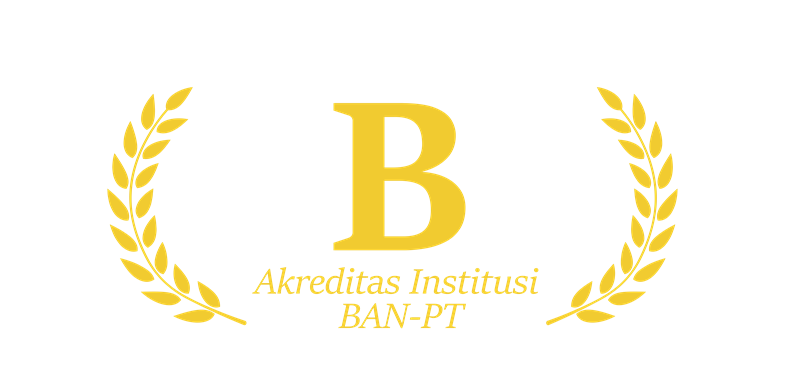About AMI
About SPMI
Monitoring and Evaluation
Internal Quality Audit
According to Permenristekdikti No. 62/2016 on Higher Education Quality Assurance System, the quality of higher education is the level of conformity between the implementation of higher education and Higher Education Standards consisting of National Higher Education Standards and Standards set by Higher Education. To measure the level of conformity between the implementation of higher education and Higher Education Standards, an evaluation of the implementation of Higher Education Standards is carried out through an Internal Quality Audit (AMI), where evaluation is part of the PPEPP implementation cycle.
Internal Quality Audit (AMI) is an inspection process carried out transparently and systematically to determine whether activities carried out in the academic and non-academic fields have maintained quality and the results have been carried out effectively in accordance with the standards, procedures and rules set at the International University of Batam. Internal Quality Audit is a stage in the quality assurance cycle to improve the quality culture of Universitas Internasional Batam.

Based on the type, there are two types of quality audits conducted at Universitas Internasional Batam, namely:
- Internal Quality Audit is an audit conducted by to see conformity to the standards, procedures and rules that have been set by the International University of Batam which in implementation is carried out by internal auditors of the International University of Batam;
- External audit is an audit conducted in assessing the suitability of standards from external parties.
Internal Quality Audit is a systematic, independent, and documented test to determine whether quality activities and results are in accordance with established university standards/procedures/regulations and are effectively implemented to achieve university objectives. Internal quality audit is not an assessment but rather a matching of conformity between implementation and planning of a work program. If in the internal quality audit instrument an assessment / scoring is carried out, then the assessment / scoring is only used to facilitate the formulation of quality improvement recommendations, not to get a predicate or assessment.
The purpose of an internal quality audit is to verify the standards, procedures and rules that have been established with implementation to obtain recommendations for quality improvement and ensure accountability of the findings of good practices or discrepancies between implementation and standards, procedures and rules.
From what has been explained above, the specific objectives of internal quality audits are:
- Maintain and improve quality in accordance with predetermined levels;
- Checking the conformity or non-conformity of standards, procedures and rules that have been set against implementation;
- Conducting examinations related to the process and results of quality achievement to determine the effectiveness of achievement;
- Prepare a report of the results to the auditee for further improvement;
- Provide an opportunity for the auditee to improve;
- Assist the auditee to prepare for external audit or accreditation.
The implementation of AMI itself is intended to:
- Ensure that the Faculty / Prodi has carried out quality assurance, with standards that meet and / or exceed the National Higher Education Standards (SN Dikti) in the academic field so as to be able to develop sustainable education quality;
- Evaluating study programs that have exceeded the minimum standards of Higher Education, by evaluating the results of the assessment of 9 standards and development standards;
- Evaluating the results of quality assurance, so that recommendations / suggestions can be made for improving the performance of the Faculty / Prodi;
- Support the implementation of the External Quality Assurance System carried out by the National Accreditation Board for Higher Education (BAN-PT) / Independent Accreditation Agency (LAM).
Internal Quality Audit is carried out through several stages as follows:
- Internal Quality Audit Planning
- Implementation of Document Audit/Desk Evaluation
- Compliance/Visitation/Field Audit Implementation
- Internal Quality Audit Reporting


Baloi-Sei Ladi, Jl. Gajah Mada, Tiban Indah, Kec. Sekupang, Kota Batam, Kepulauan Riau 29426
(0778) 7437111
Temukan kami


